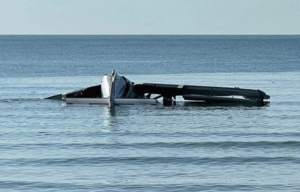In Rio de Janeiro on Thursday, Catholic worshippers placed an eco‑friendly carpet of recycled plastic caps in front of the Christ the Redeemer statue, calling for stronger environmental protection ahead of upcoming UN climate talks in the Amazon.
This creative tapestry, part of the Corpus Christi feast celebrating the Eucharist, was crafted from approximately 460 kg (1,014 lb) of recycled plastic caps. In recent years, the sanctuary around the iconic statue has used its prestige to highlight ecological concerns. Marcos Martins, environmental manager at the site, noted, “These caps could be polluting the environment. Today they’re here as a carpet…and then we’ll reuse it again with an exhibition,” exemplifying a circular‑economy approach.
Just after dawn and before tourists arrived, Cardinal Orani João Tempesta led the celebration overlooking Guanabara Bay and Sugarloaf Mountain. He told reporters that the installation reminds us of our shared duty to care for creation—an effort in harmony with Christ the Redeemer’s values.
That day’s ceremony also honored the late Pope Francis and his influential environmental encyclical Laudato Si’, which framed ecological care as a moral imperative and criticized systems that degrade both people and the planet. “With COP30 approaching and the recent U.N. Ocean Conference behind us, Christ is a powerful advocate for this cause,” said Carlos Lins, marketing director at the sanctuary.
Earlier in June, the site hosted workshops, discussion groups, and conservation initiatives. The statue itself, perched atop Corcovado Mountain, is part of Tijuca National Park.
Brazil has recently faced severe environmental crises—from Amazon droughts and Pantanal wildfires to flash floods in the south. This week, heavy rains in Rio Grande do Sul claimed at least two lives, just over a year after the region experienced record-breaking floods.
Experts warn that such extreme weather events are becoming more common due to human-driven climate change.













